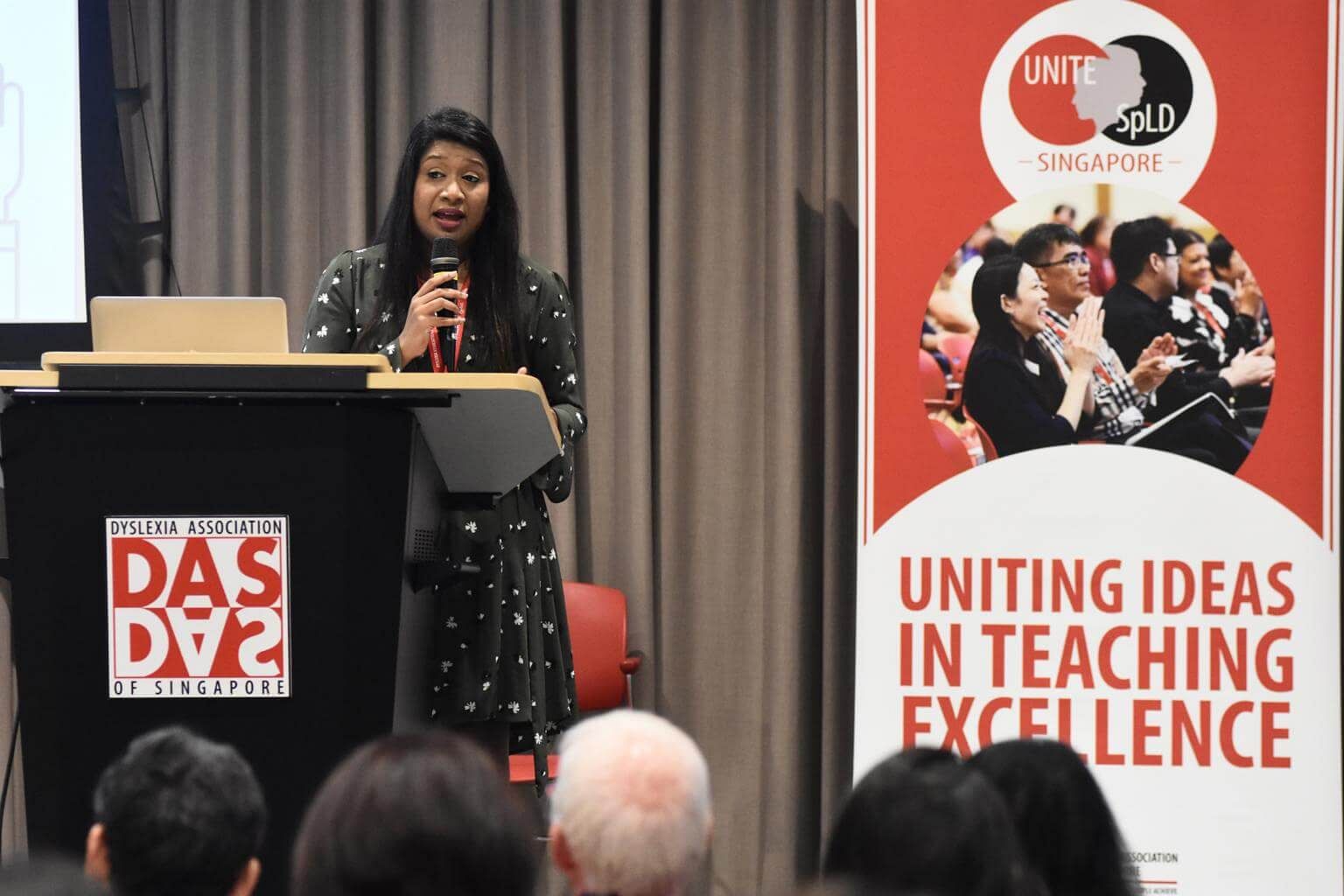Students with dyslexia turn to technology for better learning experience
Sign up now: Get ST's newsletters delivered to your inbox

Ms Geetha Shantha Ram, director of English language and literacy programmes at the Dyslexia Association of Singapore, delivers a keynote presentation on educational technologies at the Uniting Ideas in Teaching Excellence: Specific Learning Differences conference.
PHOTO: DYSLEXIA ASSOCIATION OF SINGAPORE
SINGAPORE - Students with dyslexia who find it hard to give presentations may soon get help to overcome their nerves.
A new virtual reality program will allow them to hone their speaking skills in front of a virtual audience and even give them cues to make eye contact and hand gestures.
The presentation skills tool is a joint effort by the Dyslexia Association of Singapore (DAS) and a group of students from Nanyang Technological University, and is aimed at dyslexic students on the cusp of entering tertiary institutions. It will be introduced to 50 students across 14 DAS centres in September.
Students with dyslexia usually have difficulty reading, writing and spelling and may struggle with lower confidence levels, conduct problems and hyperactivity.
The presentation skills tool comes under the iStudySmart programme, which uses technology to boost the learning of students with learning disabilities.
The programme was announced on Thursday (June 21) at a DAS teaching conference at the Lifelong Learning Institute. Educators from 14 countries are taking part in the three-day event, called the Uniting Ideas in Teaching Excellence: Specific Learning Differences 2018 Conference, which started on Wednesday.
In a speech on Thursday, Ms Geetha Shantha Ram, director of DAS' English language and literacy programmes, said: "It takes a student with dyslexia twice as long as the average student to learn something.
"The great thing about technology is that you can use them to facilitate learning at home as well, which helps to bridge the disparity in learning pace."
One tech tool that the DAS is using is the Raz-Kids application, which has been introduced to children in its pre-school programme.
With the app, children with reading difficulties can have e-books read aloud to them both in the classroom and at home. The app also offers teachers an avenue to keep track of the children's reading progress.
DAS educational technology coordinator Soofrina Mubarak, 31, said that tech tools such as interactive whiteboards, which allow for immersive learning, have made students more focused during classroom activities.
"When you have interactive and fun features, even students who have trouble paying attention during class are more engaged and productive," she added.


